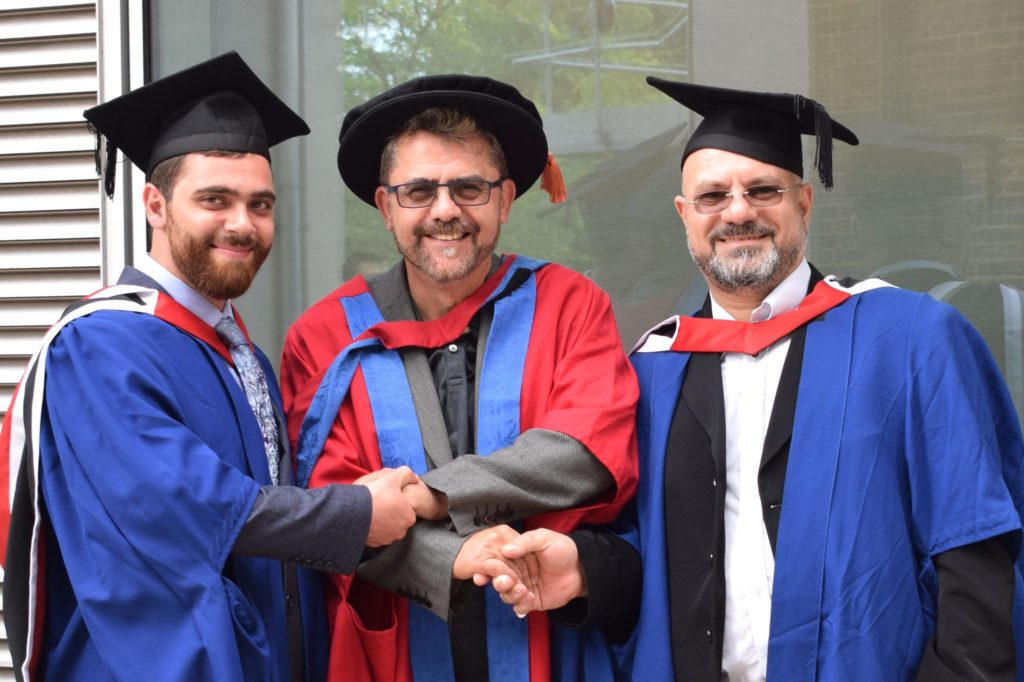
Foundation Islam and Modern Politics – DE
Partial scholarships are available subject to meeting specific conditions. For further information contact **@is*************.uk
The Islamic College
**@is*************.uk
0044 (0) 2084519993 (Ext. 224)
As a religion, Islam contains distinct political dimensions whose origins can be traced back to the contents of its holy book, the Qur’an, and the practices of its Prophet Mohammad (SA).This module examines the compatibility of Islam with modern political institutions through a study of Islamic political thought according to major schools and reinterpretations. In addition, political interactions between the West and Islamic civilisation during the Colonial post-Colonial, Cold War, and post-Cold War periods are investigated.
Syllabus
- Politics in early Islamic History
- Islam and modernity – Orientalist view
- Islam and modernity – other views
- Islamic political movements: a historical analysis
- Islamic political movements: hijacking Islam
- Islamic Countries: Libya, Egypt, Sudan, Iran
- Islamic Countries: Algeria, Turkey, Lebanon, Saudi Arabia, Pakistan
- Islam and Democracy- In theory
- Islam and Democracy- In practice
- The Clash of Civilisations – The thesis and a critical appraisal
- Recent political developments in the Middle east
Learning, Teaching, and Assessment Strategy
All learning materials are developed according to the SCATE format. Students are advised to study units available online followed by timetabled activities which are of crucial importance and require a serious attention. Students need to consult suggested reading materials which are not necessarily available online. At the same time, students are expected to contribute to Discussion Group as an integral part of their study. They would receive feedback regarding their activities and contribution by the module tutor. Extra reading and activities are provided for students who are interested to have a deeper and broader understanding of the issues of concern.
Formative Assessment
Formative assessment for this module will consist of written feedback from the lecturer, questioning and discussion through the online forums. One draft of the students’ final essay (coursework) may be handed in to the lecturer at the 12th learning week for formative assessment, in which the lecturer will give the student feedback on how to improve their research and quality of writing.
Summative Assessment
Students are required to submit 3 out of 5 Review Questions (RQ) and 3 out of 5 Activities (Act) as the weekly assignments for each module during the semester. All of these assignments as well as students’ final essays at the end of the semester will be commented and marked by tutors. Students can see those comments and marks in their drop box which are available in their D2L accounts. Finally, students are required to submit an Individual coursework -final essay (4000 words) on a relevant topic approved in advance by the module tutor.
Assessment Weighting
Activities: 30%
Review Questions & Discussion Group: 10%
Final Essay (Coursework): 60%
Students should get at least a pass mark for all three above components.
Core readings:
- Adamec W. L. (2009). Historical Dictionary of Islam,The Scarecrow Press, Inc.
- Bayat, Asef (2007). Islam and Democracy: What is the Real Question?, Amsterdam University Press
- Recommended readings
- Cesari, J. (2004). When Islam and Democracy Meet, Palgrave Macmillan
- Esposito, L. J. (1999). The Islamic Threat: Myth or Reality, New York: Oxford University Press.
- Esposito, L. J. (2005). Islam: the Straight Path. New York: Oxford University Press
- Esposito, L. J. (2002). Unholy War: Terror in the Name of Islam. New York: Oxford University Press.
- Hafez, K. (2010). Radicalism and Political Reform in the Islamic and Western Worlds, Cambridge University Press
- Huntington, P. S. (1993) “The Clash of Civilization”. Foreign Affairs, v72, n3, 22-28.
- Hunter T. S. (2009). Reformist voices of Islam : mediating Islam and modernity. M.E. Sharpe, Inc.
- Khaled A. E. (2004), Islam and the Challenge of Democracy, Princeton University Press.
- Lewis, B. (2002). What Went Wrong? : Western Impact and Middle Eastern Response. London: Phoenix.
- Lucas, C. P. and Robbins T.(2004). New Religious Movements in the Twenty-First Century, Routledge
- Salih, Mohamed (2009). Interpreting Islamic Political Parties, Palgrave Macmillan
Hafez, K. (2010). Radicalism and Political Reform in the Islamic and Western Worlds, Cambridge University Press
BOOK CATEGORIES
New Release
- Classical Texts
Shi‘i Theology (Kashf al-Murad fi Sharh Tajrid al-I‘tiqad)
£25.00 Add to basketRated 0 out of 5


